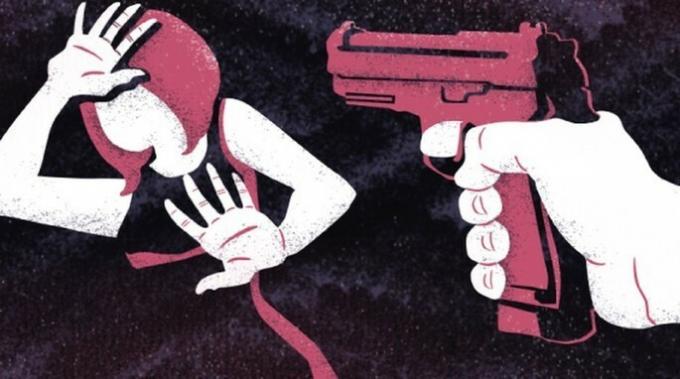Recently in Brazil, the Supreme Court approved civil unions between people of the same sex. Several controversies surfaced transcending the discussion about same-sex marriage and prejudice, also inviting reflection on freedom of religious expression.
According to IBGE data, in Brazil there are more than 60,000 homosexual couples, a considerable number that can be much greater when considering those who omitted their sexual orientation due to the prejudice they face on the day morning. Thus, from a legal point of view, this law meets the interests of a social group, the which has its representation in society and therefore must have its demands and rights guaranteed by the law. After all, as is well known, it is up to the legal system, at least in theory, to guarantee the equality of rights between the citizens without accepting any existing characteristics or peculiarities and, in this case, without considering the sexuality.
This decision is an important achievement in the sense of expanding property guarantees among homosexuals who live in a stable union, who, in the event of the death of the partner, will be able, with the approval of this law, to legally enjoy their inheritance, as has already occurred with all heterosexual couples since ever. Thus, placing the issue of property rights as the central point of the discussion around this law, it can be said that the STF decision does not provide a change radical in the organization of Brazilian society, as there are no legal restrictions for people of the same sex not to have an affective relationship, not even for them not to live together. The constitution of these unions already exists. In other words, this decision by the judiciary does not bring the same-sex union as something new, but rather guarantees its legalization and rights previously restricted to Brazilian homosexual couples.
In all societies and throughout human history, the homo-affective relationship has been present, obviously varying according to the level of social acceptance from the cultural point of view, becoming something public or not. It is necessary to consider that moral codes and values are historically and socially constructed, and that, for this reason, homosexuality has always existed, on the other hand, it has not always been treated in the same way. Although it is in the first decades of the 21st century and progress has been made in relation to the defense of human integrity, the issue of tolerance towards minorities (women, blacks, homosexuals, among other groups) seems to be unresolved, a fact that is proven in the occurrences reported by the news, such as aggressions against homosexuals in public places, such as on the famous Avenida Paulista, in the city of São Paul. In Brazil, at the same time that a law for the defense of women is approved, such as the “Maria da Penha” law, there is also a strong prejudice and violence against homosexuals. Thus, in a society so full of contradictions, one could not expect any other situation than a strong division between opinions “against” or “in favor” of the discussion raised by the STF.
Considering the stigma that homosexuality carries in Brazilian society, there was no consensus in public opinion regarding this law. In addition, considering that this issue also touches the frontier of people's religiosity, various discourses reverberate, which, on behalf of others values that they consider "moral", empty the defense of equality and freedom (fundamental in Western morality) among individuals, regardless of their sexuality. In this way, it can be understood that it is the State's duty to create mechanisms for the preservation of human dignity, the which does not concern only gender or sexual orientation, but the man as an autonomous being and emancipated.
Do not stop now... There's more after the advertising ;)
In the wake of the debate on the legalization of homosexual unions, the criminalization of homophobia, that is, the manifestation of prejudice against homosexuals, has also been discussed. But if the intention to promote the discussion is good, on the other hand, the way it has been placed and defended by those who say they are in favor of the criminalization of homophobia seem to engage in a contradiction that has also raised controversy. In the name of defending sexual diversity, it is considered making a crime, for example, to speak and demonstrate public of religious who preach the nonconformity of homosexuality with their religious convictions and doctrinal. In other words, religions such as Christianity (evangelicals, Catholics, among others) would have their leaders and faithful committing crimes by mentioning that they disapprove of homosexuality and acts such as same-sex marriages according to their reasons, which they consider sacred.
Intellectuals, the media, and public opinion in general, point out that this would be one of the biggest controversies, since, in In the name of one freedom (of sexual option), one would be, at first, curtailing another (that of freedom religious). Thus, if on the one hand the legalization of same-sex union and the criminalization of homophobia can be an advance in a society that seeks to build tolerance to diversity (in broader sense of the word), on the other hand, it can trigger (even if this is not the intention) a setback in terms of guarantees of freedom of expression and choice religious. If the plurality of sexual choices is to be respected, religious expressions must not otherwise be considered. Prevent pastors, priests or any religious from confessing their faith according to the teachings of their doctrine seems to indicate that it is also a way of affronting freedom, more specifically freedom of expression religious.
In this debate, it is necessary to take into account the consensus that the apology for physical or psychological aggression as expressions of homophobia, as well as prejudice itself, must be expressly disowned. It is necessary to consider that the very essence of religions such as Christianity is based on the principle of defending life, man, welcoming, tolerance and peace and, in this way, those who consider themselves Christians would be in contradiction with their own faith when defending violence against the homosexual. Thus, it would be necessary to clarify the border between homophobic discourses that defend violence (physical or psychic) and others who just disregard, based on their religion, the naturalness of homosexuality.
If there is an understanding of the need for a secular state to guarantee democracy and law, the interference of the legal system in the religious sphere seems to be an out of place idea. If the freedom to choose sexuality, as well as the integrity of those who recognize themselves as homosexual, must be guaranteed, in the same way freedoms of expression and religion must be guaranteed by law.
Discussion, controversy and debate itself are part of life in society and, furthermore, they are positive when they aim to seek consensus in the name of tolerating social cohesion. On the other hand, the imposition of ideas and positions (in one direction or another), even if they are in the name of a "noble cause", go against the grain of freedoms and the construction of a democratic social fabric that is tolerant of diversities, whether sexual or religious.
Paulo Silvino Ribeiro
Brazil School Collaborator
Bachelor in Social Sciences from UNICAMP - State University of Campinas
Master in Sociology from UNESP - São Paulo State University "Júlio de Mesquita Filho"
Doctoral Student in Sociology at UNICAMP - State University of Campinas
Sociology - Brazil School


